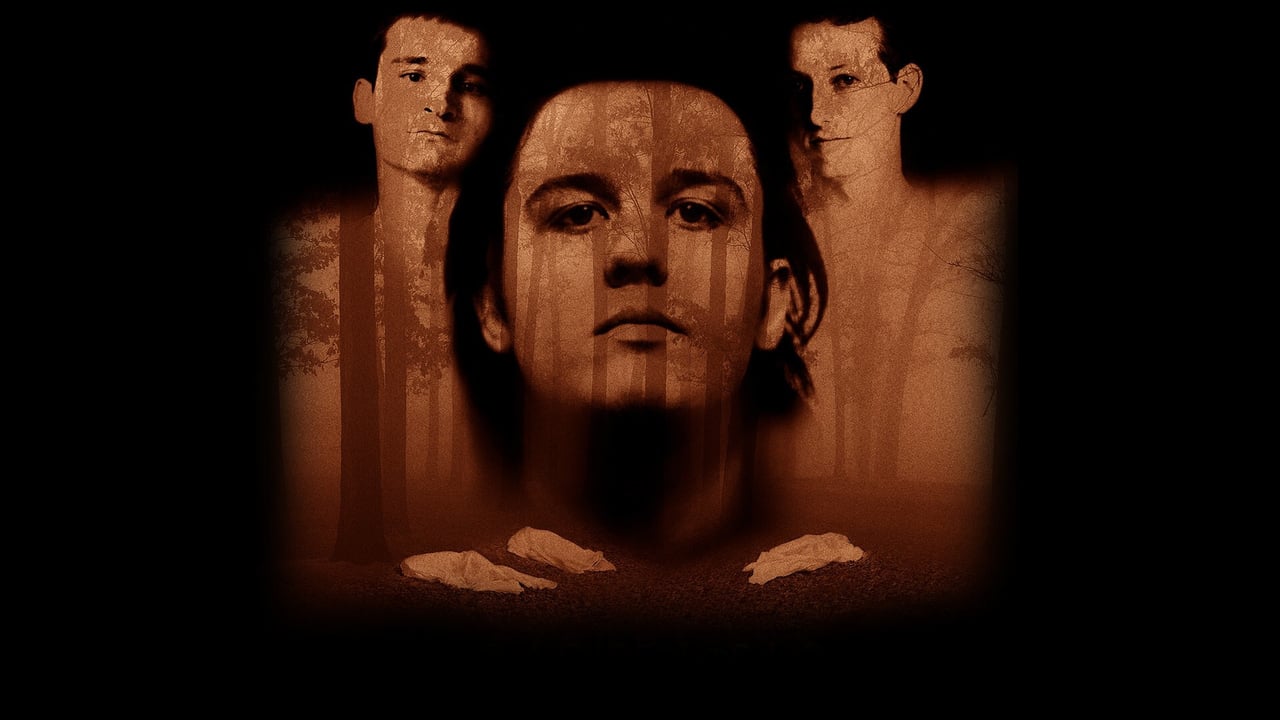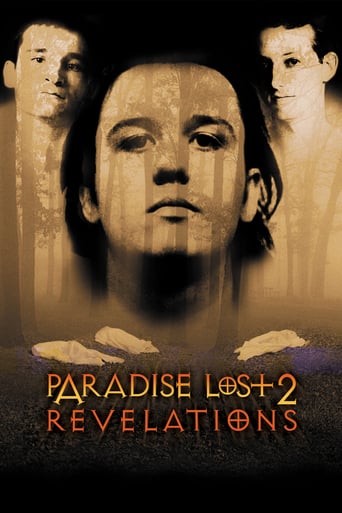

Damien Echols, Jessie Misskelley, Jr., and Jason Baldwin were convicted in 1994 for the murder of three boys in West Memphis, Arkansas. It's 1999 and Damien has his final appeal in front of Judge David Burnett. The popularity of the original documentary has inspired support group, Free the West Memphis Three. Cameras are no longer allowed in the court. Of the victims' family, only John Mark Byers is cooperating with the filmmakers and he has a lot to say. He also has had a lot of legal problems. His wife died in 1996. He takes a lie detector test in front of the camera. The defense team seems to be concentrating on bite marks on the boys.Byers is a big part of this follow-up. He's a very odd character and the movie is trying to make him suspicious. It's a lot of innuendos. Without being able to film the court proceedings, this is left without its main narrative. It becomes obviously one-sided. The support group adds very little to overwhelming need of this sequel. It needs to solve the murders or get the West Memphis Three out. This achieves neither. This could have been a shorter film to update the situation.
... View MoreIt's strange to come to write about Paradise Lost 2: Revelations having watch some (though not all) of the third and final entry from 2011, part 3 Purgatory (which was made the same year the West Memphis 3 - Damien Echols, Jessie Misskelley Jr., and Jason Baldwin - were finally released from prison due to an unusual 'plea' deal). I say this because by the time one watches that film, shot some 12/13 years after the second entry which was shot four years after the original Paradise Lost (93/94 in Arkansas), a key character (and I use the word Character I should say with a capital C) with John Mark Byers has changed. Hindsight is always 20/20 as the saying goes, but it is still captivating and kind of horrifying to see how Byers, and not necessarily the three (at the time) convicted killers, becomes the main character here.I have to wonder if the filmmakers went into the project knowing exactly what they would do; part of the impetus was to go back to the area in Arkansas as Echols in 1998/99 was facing a very urgent appeal process in court (with the original judge in the case, I'd say unfortunately), and also by this time the effect of the first Paradise Lost doc was such that the film itself was available as evidence for the defense. Ironically though because of the notoriety, the filmmakers Berlinger and Sinofsky weren't allowed in the courtroom, and the parents of the victims (seen in part 1) declined to be interviewed... except for Byers' stepfather, and his mother by this point had died. What did she die from? Well, that's kind of a funny story...Although the filmmakers here have access to the West Memphis 3 (Echols seems to get the most time since it's his appeals process as the focus), as well as one of the defense lawyers and a special investigator who can spot things that should have been clear to the cops at the time of the killings, and there is the group that formed to help free men and how they set up the website and (as a running thing in the movie) having an online chat for people on the site with Echols, the lack of being in the courtroom and certain subjects makes things a little more limited. It's through no fault of their own, but the filmmakers probably had to scramble to find some way to make the film more compelling. Needless to say, Mr. Mark Byers ended up, through his own sense of either mania or ego, said 'I'm here!' The running thing with Byers is that certain people around him - neighbors, especially those who, for example, claim (rightfully so) that he and his formerly-living wife stole things from their homes, or just people in town - don't trust him. More to the point, Byers is looked at as an outside-probably-yeah suspect as the actual murderer of the kids (the step-father of one, and the kid had a history of abuse that wasn't really put forward until this doc). No real attempts are made by the authorities to go after him, which seems about right given how steadfast the chief (retired) officer is with the results of the case), but all the same Byers, who does things like YELL into the camera in full close-up for his enemies and doubters to go to hell and so on and keeps getting into confrontations with the Free West Memphis people (who aren't looking for any confrontation and want to ask simple questions), isn't having it. So how about a polygraph test? This latter part makes for the most compelling and darkly twisted (for me) part of the documentary. Arguably there's a moment, in an informal conversation with the tester before the actual polygraph, where Byers admits to murdering his wife (Freudian slip one might say, but it's a 'whoa whoa WHOA' moment), and he says to the tester that he's on a mixture of pills to fight his 'brain tumor' (does he have it for real, who knows). But this makes for a chilling centerpiece to what is otherwise a kind of warped piece of theater for Byers. He is someone who PLAYS to the camera, whether he knows it or not; he mostly does know it, you can tell, in a way where it's kind of either bad acting, or a level of just 'he does believe this, but what's in his head?' He becomes one of the most striking personas I've seen in a modern documentary, and whether you think he's a killer or not, as he WAS a criminal (at the end of the film the text says he's arrested and put to jail for some time for drug dealing to a narc) and it makes for an ambiguous treatment.The focus on the case itself is sharp and interesting too,, the new evidence all the more troubling, albeit at times there's a reliance a bit much on footage from the past movie. But it's sad just how much of a miscarriage of justice went on, through perception of young people, Wiccans and the "Occult" (which the expert on camera refutes and it's easy to see from the pictures too), and throughout people like Echols make for the opposite side of someone like Byers: a lucid, calm, but seemingly decent person who has been put into a position where it really is LIFE or DEATH. The viewing experience may be slightly colored by what comes in part 3, or just what happened in the real world to the West Memphis 3, but it doesn't diminish the impact of this documentary with this real force of nature in the ultimate hulking-talkative-WTF redneck John Mark Byers. If nothing else, see it for him.
... View MoreAfter finding the first one absolutely riviting and cause for thought and discussion, we looked foward to Paradise Lost 2 with some anticipation. It was too long for the little new information it contained. It spent way too much time on John Byers with no payoff. Only after reading the wm3.com website, we learned that he and his wife had quite a history of crime, drugs and abuse; this should have been brought much more in the movie instead of his irritable rantings. The end of the movie should have tied up the loose ends better so you could come away with a good understanding of where things stood. I thought the "support group" looked more like groupies for Echols which was pretty wierd. They weren't much more coherent and logical than Byers in many ways. I don't think the bite marks ruled out the boys at all; only that they didn't bite!@
... View MoreHarrowing, provocatively-intense and emotionally-charged documentary about the ever so fascinating but disturbing Robin Hood Hills murders case. Sharply directed and engrossingly formated with multi-dimensional angles that delve into the human psyche and makes one think liberally and often inquisitively about the way our justice system operates and the possibility of evil at liberty and innocence imprisoned! Grade: A (Must see!!!)
... View More